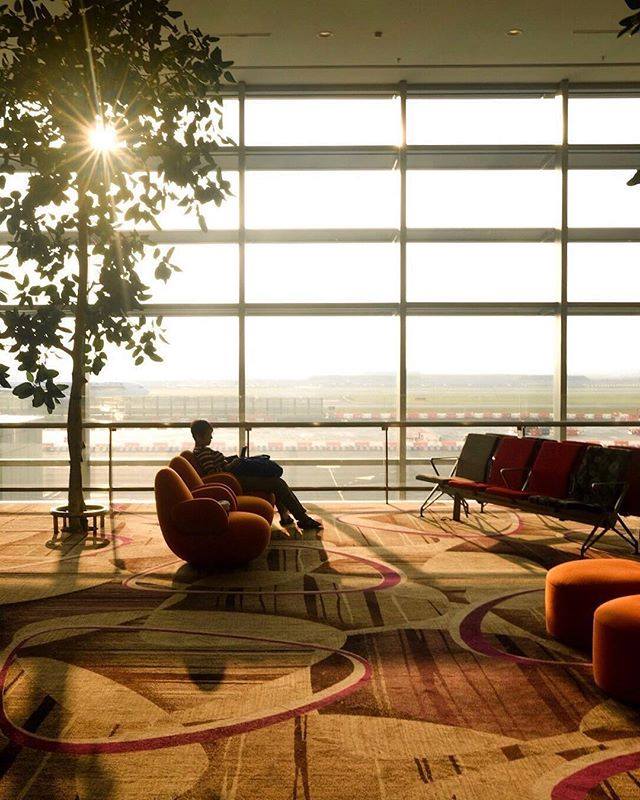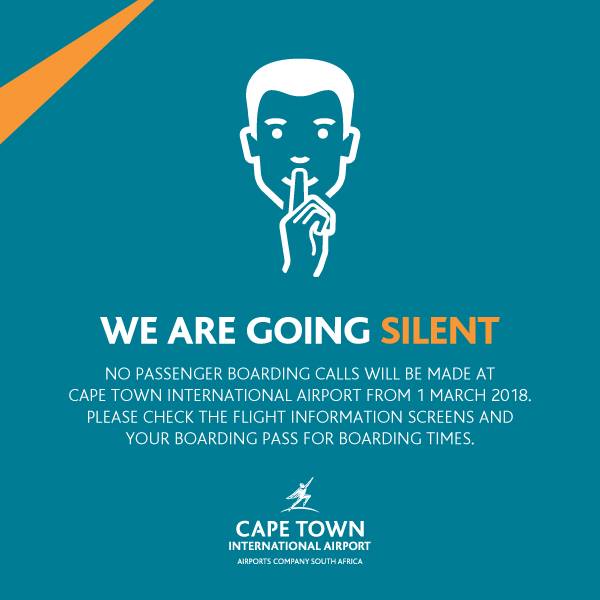Silent airports may seem like an impossible dream. We are so accustomed to incessant airport noise. It reverberates off walls, adding to the maddening cacophony of sensory assault we’re subjected to every time we fly.
From whirring and buzzing building systems to whining and repetitive announcements. From grinding coffee machines and idle chatter to squeaking, thudding luggage. Airport noise is mentally and physically draining.
But now, many airports are helping to solve part of the problem by creating silent airport policies. Such policies have been slowly growing in popularity.
London City Airport operates a silent airport policy. This means that announcements are only made in the case of emergency or during severe weather. No announcements call passengers to their boarding gates.
At Helsinki Airport, overhead announcements happen only in gate areas.
Barcelona El Prat has a silent airport policy too, with a reduced number of announcements via the PA system being made. There are no boarding or last calls, except for emergency situations.
RECOMMENDED: Just Landed: Airport Fitness and Wellness Trends That You Need to Know About in 2018
Silent airports are a growing airport wellness trend
It seems the global silent airport trend is growing very rapidly as major airports all across North America, Europe, Africa, Asia, and Australia adjust their announcement policies to make airport travel less noisy and disruptive.
Only in unique circumstances is name paging done in Hong Kong International Airport. There aren’t any final call announcements. How nice is that?
Chennai Airport also went silent. Airlines have stopped making announcements, including boarding calls at the domestic terminal. This reduces noise pollution at the airport.
Last year OR Tambo International airport declared it will no longer announce domestic flights, and “all microphones at the Domestic Departures Terminal and gates will be switched off.”
Cape Town International Airport has gone silent this year too. As of this March, they’ve switched off public address microphones at domestic departures gates, and only allowed limited use at the international departures gates.
This year at Changi Airport in Singapore, all terminals are going to be much quieter places. From the first of January, there will no longer be final call announcements for passengers to head to their boarding gates. Also, airlines will stop paging for specific passengers.

Changi Airport Group (CAG) spokesman Ivan Tan told The Straits Times that this initiative would ensure a quiet and relaxed ambiance in busier airport terminals. As a result, passengers focus only on important announcements.
“With more flights and passengers, maintaining the present frequency of announcements will mean noisier terminals and more interruptions in time to come. One concern is that passengers may pay less attention to the announcements made over the public address system, crowding out the more critical announcements.”

Silence is good for you
A Duke University study (2013) found that two hours of silence daily incited significant cell development in the hippocampus, the brain region related to the formation of memory. The “brain on silence” is a brain that is actually quite active, because it’s monitoring and evaluating internal and external information. This background activity forms a kind of “conscious workspace,” which helps us establish how we fit into the world. This workspace is also the place where we engage in important self-reflection, and that’s key to good mental health.
Airports’ efforts to reduce noise are an important step in the right direction. Less noise not only creates a calm, relaxed ambiance. It also promotes stronger mental health and a stronger sense of self. Additionally, new advances in technology are allowing airports to more easily adopt the practice.
There are scientists that think peace and quiet should be a human right. We think so too, and we can’t wait to see the continued evolution of the silent airport trend.
“It should be a right to have access to quiet spots,” says Antonella Radicchi. She’s a soundscape scientist and architect from the Technical University of Berlin.
Who wouldn’t prefer to receive a text notification when it’s time to board and forgo the announcement headaches?
UPDATED March 29, 2018
